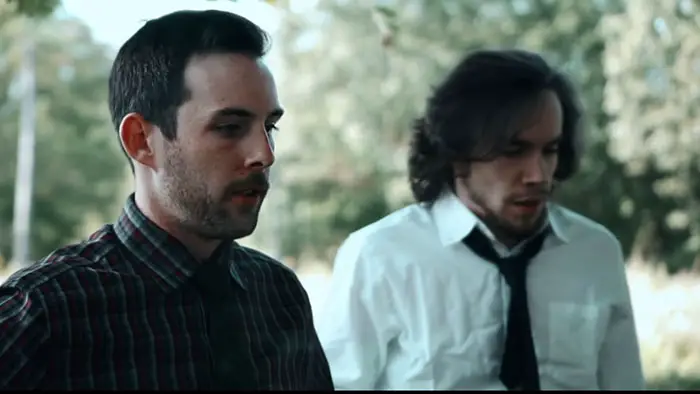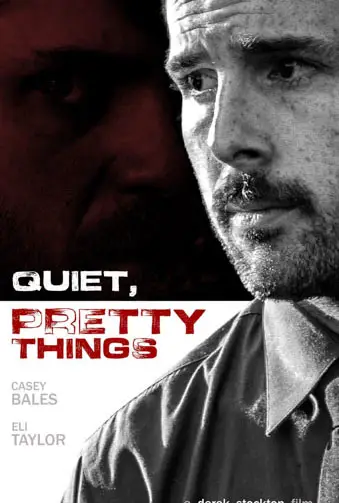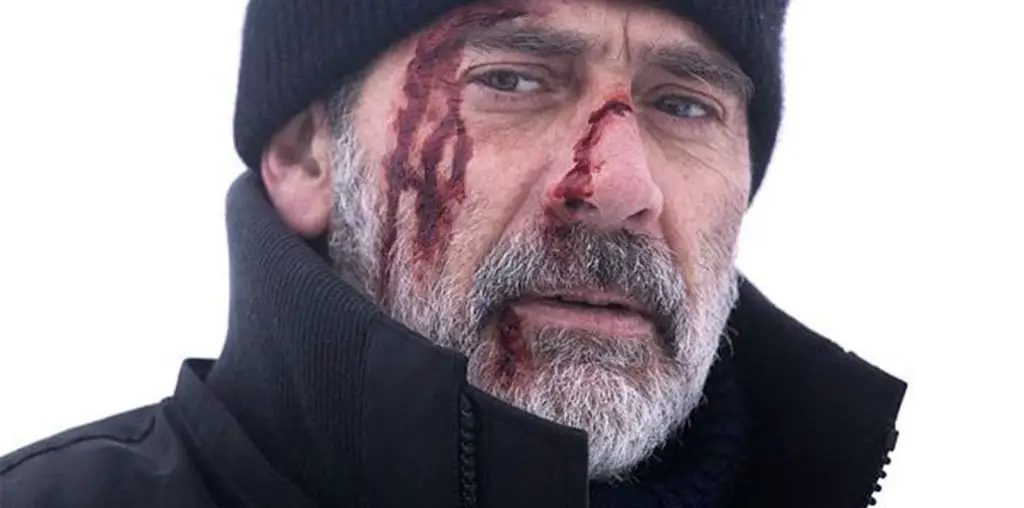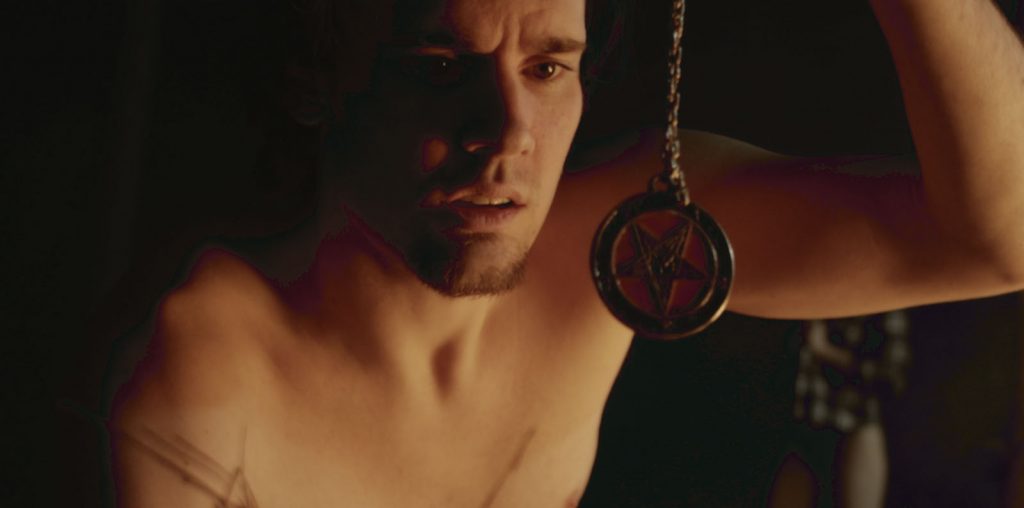
Director Derek Stockton and screenwriter Megan Stockton’s Quiet, Pretty Things is not perfect but succeeds by sheer determination. It represents what I love most about low-budget, DIY independent films: refusal to let the limitations of time and resources be an excuse not to tell stories. Money solves problems in Hollywood. Ingenuity and resourcefulness solve it for indie filmmakers.
Our story takes place in a small town outside the big city. There’s a serial killer on the loose and a detective determined to catch him. The movie follows the path of both the killer and the detective. Our killer is Rion (Eli Taylor). He’s as philosophical about why he kills as he is methodical. His work is clean, leaving very few clues for the police to go on.
Chasing Rion is the frustrated, almost obsessed Detective Quentin Robichaud (Casey Bales). Serial killers are not supposed to live in small towns, and the pressure of police work is getting to Quentin. His relationship with his wife is growing more and more distant as the relationship with his therapist grows cynical and dark.
In an act of desperation, Quentin goes on local radio and proceeds to ridicule the killer over the airwaves hoping that it will throw him off his game. The plan works, sort of. Not only has Rion stepped up his killing game, causing him to make mistakes, but the unintended consequence is each subsequent kill is a personal one against Quentin.

“…goes on local radio and proceeds to ridicule the killer over the airwaves…”
Tell a good story, and I believe audiences will forgive a multitude of imperfections. That’s what Quiet, Pretty Things does. The story is a cat-and-mouse adventure, where the mouse is the cat and vice-versa. The thriller makes the radio interview a tipping point for Rion psychologically with an added ghostly element for effect. Then for Quentin, it’s the idea that he gambled with the radio appearance and how it paid off in the worst ways. The build-up of action to the finale is good, displaying Stockton’s grasp of story structure.
The biggest weakness is the acting. I understand that the film’s location was probably limited in the number of Academy-Award winning actors available. You may not have control over the quality and experience of local talent, but what you do have control over is being prepared.
What Quiet, Pretty Things needed more than anything else was rehearsal time. Much of the dialogue felt scripted, as if the actors were reciting lines rather than making them sound authentic to the character. I could sense some actors struggle to get their lines out precisely as written on the page. I also observed a few moments of improvisation because some of the dialogue becomes rambling. Rehearsal is the only way to solve this with inexperienced actors.
I mentioned at the start that Quiet, Pretty Things is not perfect. When I look at low-budget movies, I like to separate what filmmakers can control and what they can’t. In this case, sure, the audio isn’t the greatest, the camera used was not the highest quality, actors were probably inexperienced local talent, and it was perhaps shot in either a short number of days or stretched out over months. Money solves these problems, and it’s what Hollywood has a lot of. Given what Derek and Megan Stockton had available, Quiet, Pretty Things is all heart, and if you manage expectations right, it’s worth a watch as a way to support real, independent filmmaking.

"…worth a watch as a way to support real, independent filmmaking."


